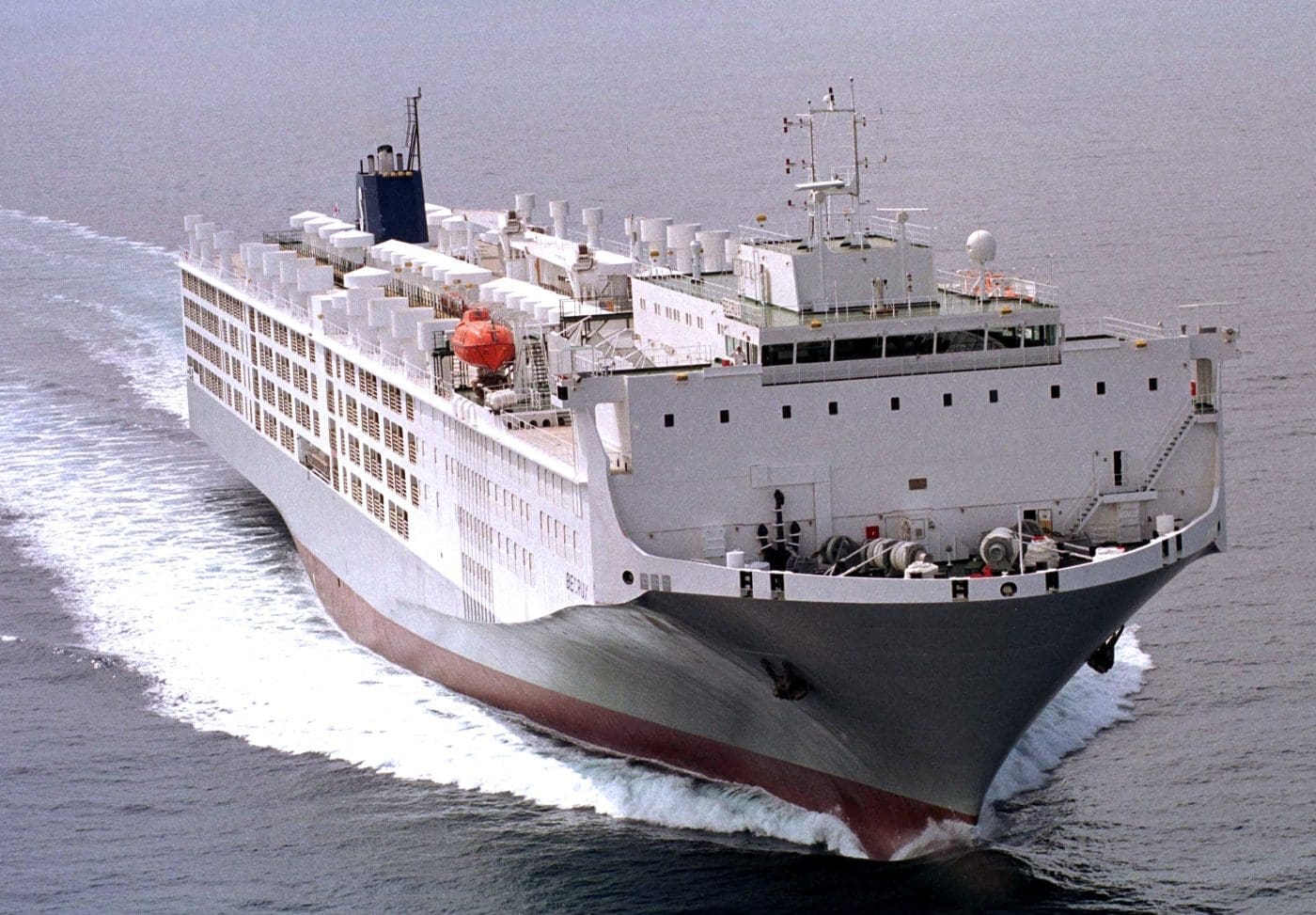THE number of livestock ships accredited to carry cattle and sheep from Australia has declined by almost 40 percent in five years, according to figures from the government maritime regulator.
Data provided to Beef Central by the Australian Maritime Safety Authority (AMSA) reveals that there are currently 20 ships certified by AMSA for the carriage of livestock from Australian ports—down from 32 certified ships in 2020 and 33 in 2015.
The official numbers reinforce a declining trend in Australian livestock shipping capacity due to various factors, including increased demand for shipping capacity on other trade routes worldwide, vessel sell-offs and retirements, rising costs, and regulatory hurdles.
Some industry sources have warned that a lack of readily available shipping could limit access to key markets, especially during droughts.
However, the Australian Livestock Exporters Council (ALEC) has told Beef Central that shipping capacity remains sufficient to meet Australia’s livestock export needs.
AMSA is responsible for ensuring the safe operation and mechanical standards of ships that carry livestock as cargo from Australian ports.
In a statement to Beef Central, AMSA said it applies high safety standards to livestock ships entering Australian ports and takes its responsibility for enforcing those standards seriously.
“Ships that fail to meet these standards are not permitted to carry livestock from Australia,” an AMSA spokesperson said.
“Ships intending to carry livestock from an Australian port are subject to a livestock pre-loading inspection by AMSA and must have a valid Australian Certificate for the Carriage of Livestock (ACCL).
“If a ship fails to meet AMSA’s high safety standards, it may not be permitted to load livestock until those deficiencies are rectified.”
The Australian Livestock Exporters Council said the requirement for all vessels carrying Australian livestock to have an Australian Certificate for the Carriage of Livestock (ACCL) ensures that livestock are transported in accordance with Australia’s world-leading animal welfare standards.
“Shipping companies will choose whether to maintain their ACCL based on commercial considerations,” ALEC said in a statement to Beef Central.
“While ALEC would always prefer to see as much competition for shipping as possible, we understand there remains sufficient capacity to meet Australia’s livestock export needs.”
Recently, Wellard sold its last ship, the MV Ocean Drover, while it is understood that Vroon is seeking buyer interest in its Livestock Express division, which includes the critical G-Class vessels that handle many of the livestock export consignments from Australia.
No new ships are being built due to high costs and regulatory uncertainty. New biosecurity rules and fatigue management laws are also said to be causing delays at ports and adding greater expenses per shipment.

